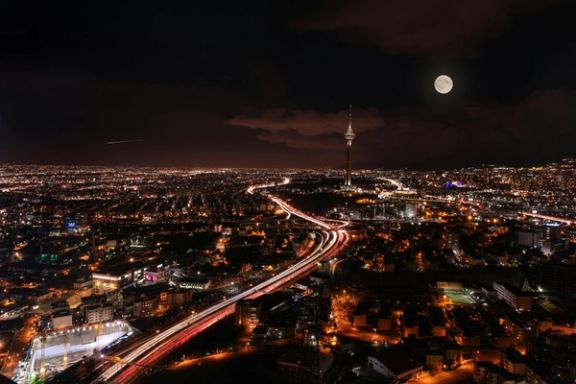These audio and video messages, sent in from various regions, underscore a growing public sentiment that attributes the widespread electricity shortage to what they describe as the "incompetence of Islamic Republic officials."
Over the past several years, the Islamic government has struggled to meet the nation's electricity demand, with repeated failures plunging hundreds of cities and villages into darkness each summer.
This year, however, the situation appears to have reached a critical juncture, as the frequency and duration of blackouts have intensified as the gap between supply and demand has widened.
Citizens, in messages and videos sent to Iran International, have highlighted the ongoing disruptions and expressed their frustration and anger toward the authorities.
Many view the government's mismanagement and misallocation of resources as the root cause of the current predicament.
One resident poignantly remarked, “These officials talk about waging war against Israel, yet they have squandered Iran's resources by funneling money to groups like Hamas and Hezbollah, leaving the nation to suffer the consequences.”
Another citizen from Shahin Shahr, Isfahan, central Iran, sent a video to Iran International highlighting the recurring power cuts in the area. Addressing the country's leadership, he lamented, "For years, you have been waging a global battle over nuclear energy, yet you cannot even ensure a stable electricity supply for the nation." He criticized the government for years of “empty promises about building power plants,” which he says have “only burdened the people with substantial costs.”
"We have made the entire world our enemy—for nothing," he continued. "How long must we live in humiliation? The Islamic Republic only refrains from missteps when it faces external pressure."
On Friday, the ILNA News Agency reported on the growing complaints from residents of Shiraz, who have been enduring frequent and unannounced power outages. These sudden blackouts have disrupted daily life and inflicted heavy financial losses. The report highlighted the cascading effects of these outages, which are manifold—ranging from damage to electrical appliances to the crippling of local businesses.
In some areas, frustration has spilled onto the streets. On Thursday, merchants at the Noor commercial complex in Tehran protested after enduring a six-hour power outage. When their appeals went unanswered, they took their grievances public, blocking traffic and disrupting bus lines until law enforcement arrived and the power was restored.
It appears that the government has prioritized religious ceremonies despite the widespread hardships faced by ordinary citizens and businesses.
On the same day as the Tehran protest, Mohammad Moradi, CEO of the Kermanshah Province Electricity Distribution Company, announced that power supply for Arbaeen pilgrims in the province had been secured. Ninety billion rials had been allocated to ensure stable lighting along pilgrimage routes and facilities.
This announcement has been met with mixed reactions, particularly as it comes at a time when many Iranians are struggling with basic electricity needs.
Each year, Shia pilgrims converge on the Iraqi city of Karbala , a significant religious commemoration. In recent years, many Iranians have begun their pilgrimage from the western regions of Iran, undertaking a long walk to Karbala.
On Tuesday, Tehran City Council member Habib Kashani confirmed that the Electricity Distribution Company had resorted to planned power cuts, acknowledging the necessity of informing residents in advance due to the impact on water supplies in buildings with electric pumps. This admission reflects the broader challenges local and national officials face in managing the country’s energy needs.
In response to the ongoing crisis, some provincial governments have taken drastic measures, continuously shutting down or partially closing government offices since early July. This approach, however, needs to do more to alleviate the underlying issues.
Experts have identified several factors contributing to the current electricity shortfall, including inadequate investment in the power sector, a lack of power plant development, an aging production and transmission infrastructure, and energy prices that have exacerbated the supply and demand imbalance.
As the electricity crisis deepens, the voices of those affected continue to grow louder, painting a stark picture of the challenges facing Iran's energy infrastructure and the mounting public frustration with the government's handling of the situation.







